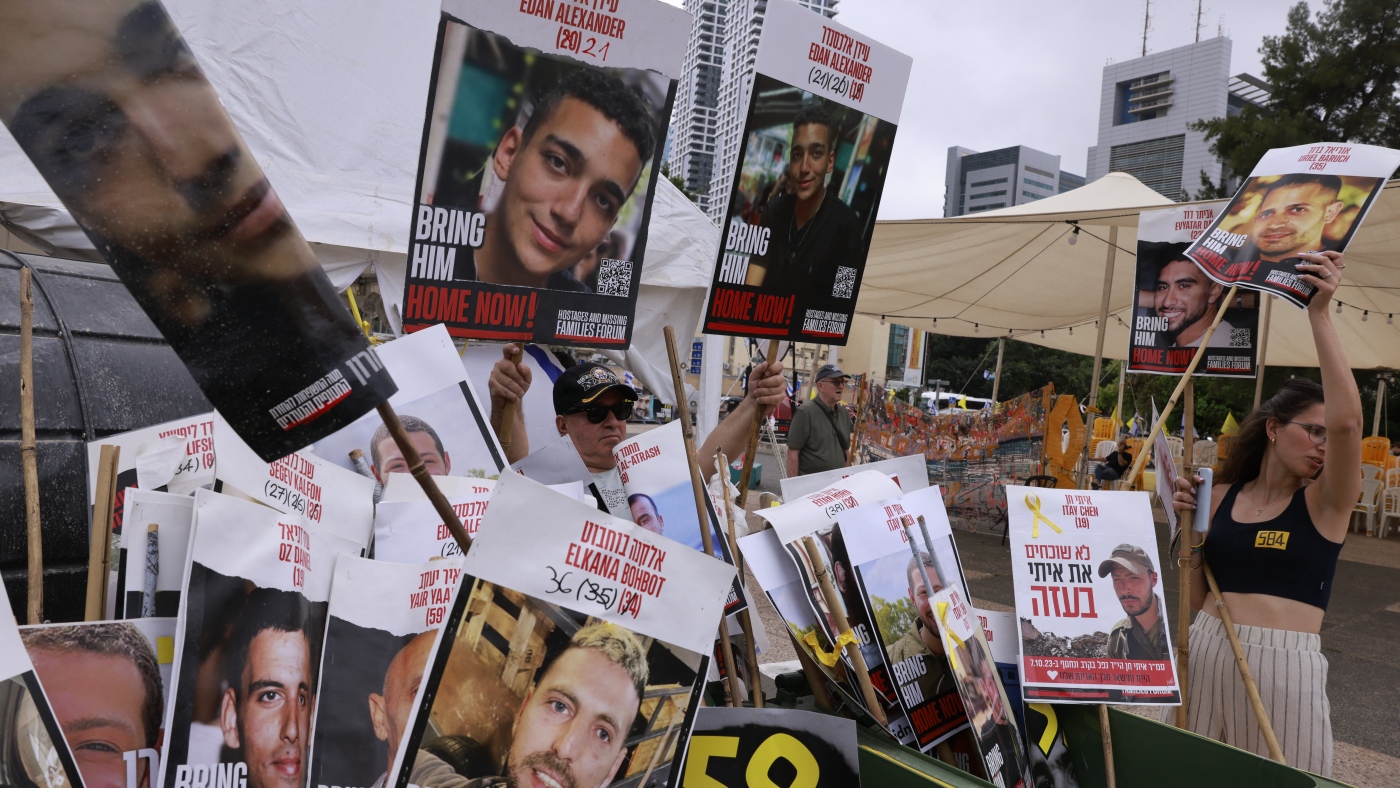The Complex Dynamics of Hostage Release and Ceasefire Efforts in Gaza
A Beacon of Hope Amidst Conflict
The announcement by Hamas to release Edan Alexander, a 21-year-old Israeli-American hostage, signals a pivotal moment in the protracted conflict between Israel and Hamas. This decision is intertwined with broader ceasefire negotiations, sparking a mix of cautious optimism and skepticism from key stakeholders, including the White House and Israeli officials.
The Humanitarian Dimension
A Personal and Emotional Struggle
Edan Alexander, a dual citizen from New Jersey, was seized during a Hamas-led assault on October 7, 2023. His release is more than a political gambit; it is a deeply personal and humanitarian issue. For nearly 19 months, Alexander has endured captivity, a period that has been emotionally and physically draining for him and his family. His mother, Yael Alexander, has been a relentless advocate for his freedom, organizing rallies and speaking at events to raise awareness about his plight. The imminent release of Alexander offers a beacon of hope for families of other hostages, illustrating the potential for future negotiations and releases.
The Broader Humanitarian Impact
The conflict in Gaza has created a dire humanitarian crisis. The ongoing blockade imposed by Israel has severely restricted the flow of essential supplies, including food, medicine, and emergency shelter, for over 10 weeks. This blockade, intended to pressure Hamas into releasing hostages, has had devastating consequences, exacerbating the already dire situation in Gaza. The release of Alexander and the bodies of four other hostages is seen as a goodwill gesture aimed at restarting ceasefire talks and alleviating some of the humanitarian suffering.
Political and Diplomatic Maneuvers
Strategic Goodwill
Hamas’s decision to release Alexander and the bodies of four other hostages comes at a critical juncture. This move is part of a broader strategy to pressure Israel into lifting its blockade on Gaza. The blockade has been a contentious issue, with Hamas accusing Israel of collective punishment and Israel arguing that the blockade is necessary to prevent Hamas from obtaining weapons and materials for terrorist activities. The release of hostages is seen as a way to build trust and restart negotiations.
International Mediation
The release of Alexander is also part of a broader diplomatic effort involving key Arab mediators, Qatar and Egypt. These countries have been instrumental in facilitating talks between Hamas and Israel, with the goal of establishing a lasting ceasefire. The Trump administration has been actively engaged in these negotiations, with direct talks aimed at securing the release of American citizens held in Gaza. The administration’s involvement underscores the complex geopolitical dynamics at play, with the United States seeking to leverage its influence to bring an end to the conflict.
Challenges and Skepticism
Doubts and Past Experiences
Despite the positive signals, there is significant skepticism regarding the sincerity of Hamas’s intentions. Both the White House and Israeli officials have expressed doubts about Hamas’s commitment to a genuine ceasefire. This skepticism is fueled by past experiences where ceasefire agreements have been short-lived, often collapsing due to renewed violence. The release of Alexander, while welcome, is seen as a single step in a much larger and more complex process.
The Road Ahead
The situation in Gaza is deeply entrenched in a decades-long conflict between Israel and Hamas. The October 7 attack, which resulted in the capture of Alexander and hundreds of others, marked a major escalation in hostilities. The conflict has claimed thousands of lives and displaced countless more, creating a humanitarian crisis that shows no signs of abating. The release of Alexander, while a significant development, is just one piece of a much larger puzzle that involves addressing the root causes of the conflict and finding a sustainable path to peace.
A Glimmer of Hope
The impending release of Edan Alexander offers a glimmer of hope amidst the ongoing conflict in Gaza. It serves as a reminder of the human cost of war and the importance of diplomatic efforts in resolving long-standing disputes. While the release of Alexander is a positive step, it is crucial to view it within the broader context of the conflict. The road to a lasting ceasefire and peace will require sustained effort, goodwill, and a commitment from all parties involved to address the underlying issues driving the conflict. The release of Alexander is a step in the right direction, but it is just the beginning of a much longer and more challenging journey. The complexities of the conflict demand a multifaceted approach, one that prioritizes humanitarian concerns, fosters diplomatic dialogue, and works towards a sustainable peace that benefits all parties involved.

